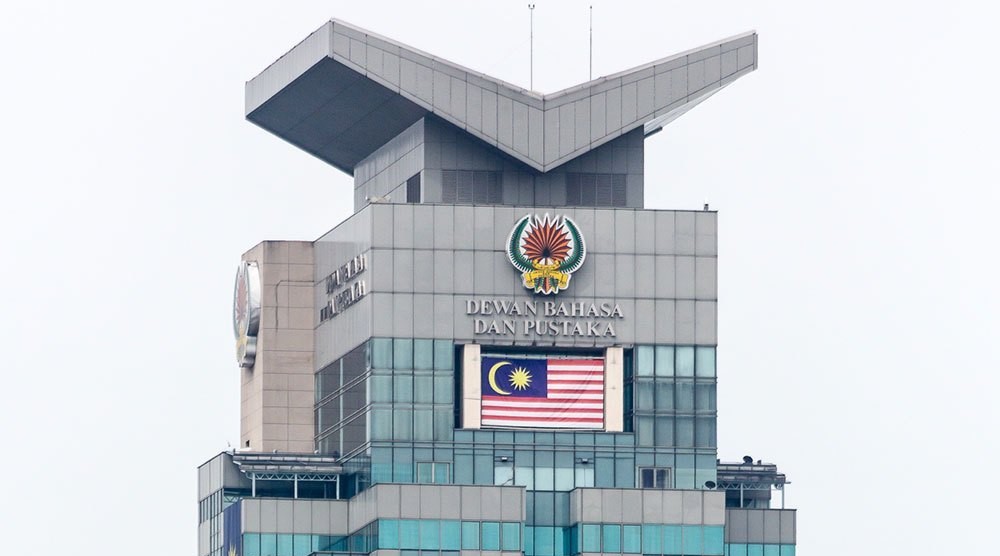JOHOR BARU: Dewan Bahasa dan Pustaka (DBP) has implemented various activities and campaigns to encourage and promote the use of Bahasa Melayu in various sectors to forge unity among Malaysians.
Last year, DBP launched Gerakan Dekad Bahasa Kebangsaan (GDBK) or National Language Decade Movement to promote Bahasa Melayu as the language of communication in various fields in both the public and private sectors.
According to DBP Southern Region director Norhafizah Mohamed Husin, GDBK is a continuation of the campaigns the agency had carried out since the 1960s to empower the national language.
Speaking to Bernama in an interview recently, she said GDBK is actually a rebranding of its early initiatives such as Minggu Bahasa Kebangsaan (National Language Week) and Bulan Bahasa Kebangsaan (National Language Month), which later in 1987 became known as Gerakan Cintailah Bahasa Kita (Love Our Language Movement) that went on until 1996. Then in 1996, it came to be known as Gerakan Bahasa Kebangsaan Sektor Swasta (Private Sector National Language Movement) that continued until 2005.
Rebranding
DBP, meanwhile, had also implemented Minggu Sastera (Literary Week) from 1987 to 1998. Then in 1999, DBP rebranded it as Bulan Bahasa dan Sastera Negara (BBSN) or National Language and Literary Month to expand the use of the national language. BBSN was launched by the then Deputy Prime Minister Tun Abdullah Ahmad Badawi.
In 2009, BBSN went through a rebranding process and was renamed Bulan Bahasa Kebangsaan (National Language Month) which, in 2018, was changed to GDBK in line with the aspirations of the Pakatan Harapan government.
Norhafizah said regardless of the change in name, GDBK’s objectives did not deviate from the original goal of encouraging Malaysians, including the private sector, to prioritise the use of Bahasa Melayu in their day-to-day affairs, both official and unofficial.
She said Bahasa Melayu played a role in mobilising and forging unity among the nation’s multiracial communities and, as such, it should be upheld as a world-class practical and realistic language.
Not yet a language of communication
It has been 62 years since Malaysia attained independence but the national language has yet to attain recognition as a language of higher knowledge and communication, pointed out Norhafizah.
To achieve that goal, love for the national language should be instilled into the people so that it becomes an important symbol of their identity, she said.
She also said that efforts should be stepped up to make Bahasa Melayu the language of choice in the fields of education, law, science and technology, information technology and finance.
“The digital era and rapid growth in the use of social media have posed more challenges for the national language and have caused the ‘pollution’ of the language.
“Therefore, we have to intensify efforts to further empower the national language. This has to be done in a more organised manner,“ she said, adding that the authorities have to first overcome several obstacles that stood in their way.
The private sector, for instance, has not taken heed of the importance of using Bahasa Melayu and this, said Norhafizah, has resulted in some people having less confidence in the national language and giving priority to English.
Other challenges include the frequent changes in the national education policy on matters relating to the medium of instruction at schools and universities; unimpressive status of the publication and translation of works in Bahasa Melayu; and lack of law enforcement in the use of Bahasa Melayu.
“The Education Act 1961 and Education Act 1996 stipulate that Bahasa Melayu is the medium of instruction in education. Article 152 (1) of the Federal Constitution states that Bahasa Melayu is the national language and official language of the government.
“So, if we love our national language, there’s no reason why we shouldn’t elevate the status of Bahasa Melayu,“ Norhafizah added.
Good command of Bahasa Melayu
Asked to comment on the command of Bahasa Melayu among Malaysians, Norhafizah said basically, most of them have a good command of the language and use it daily.
“We now just have to improve the functions of the usage of Bahasa Melayu. As of now, its functions are rather limited and it has yet to be widely used as a language of knowledge and progress,“ she said.
English, on the other hand, has had a head start in terms of its usage as a language of knowledge and technological innovation.
“Our Malaysian society is still not headed towards that direction. That’s the reason we now have to turn Bahasa Melayu into a language of knowledge in order to uplift its status in line with the advancements in technology,“ she said.
She added that DBP hoped programmes like GDBK would help to eliminate society’s assumption that to attain success and international standards one has to master foreign languages. — Bernama













